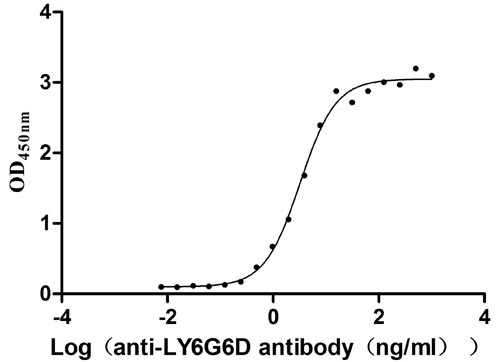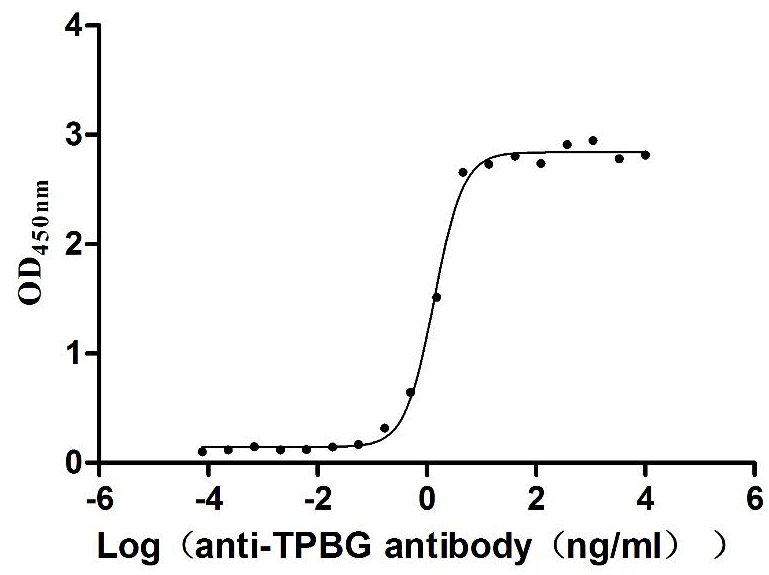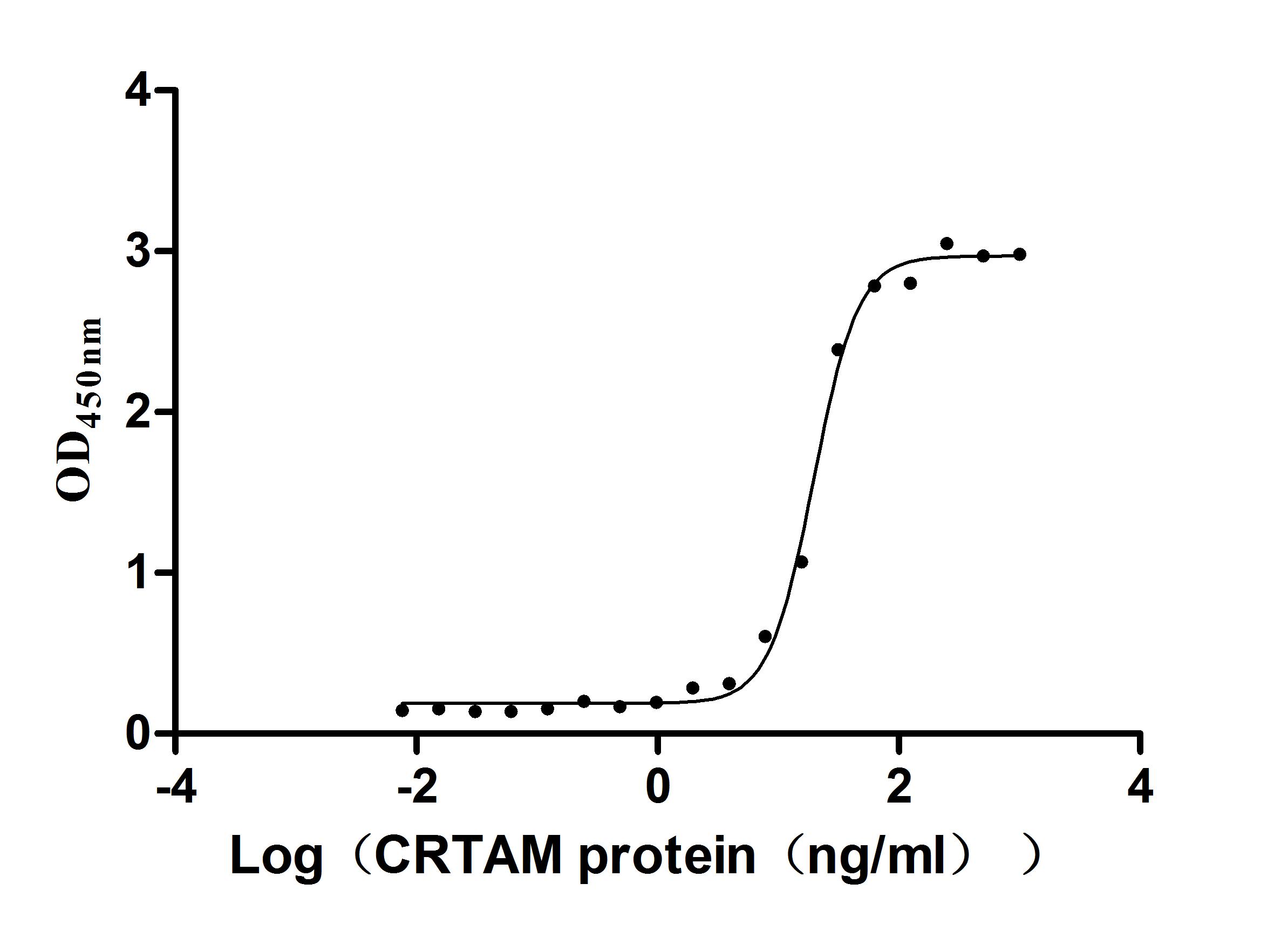Recombinant Mouse Lymphocyte antigen 6A-2/6E-1 (Ly6a)
-
中文名稱:小鼠Ly6a重組蛋白
-
貨號:CSB-YP356543MO
-
規格:
-
來源:Yeast
-
其他:
-
中文名稱:小鼠Ly6a重組蛋白
-
貨號:CSB-EP356543MO-B
-
規格:
-
來源:E.coli
-
共軛:Avi-tag Biotinylated
E. coli biotin ligase (BirA) is highly specific in covalently attaching biotin to the 15 amino acid AviTag peptide. This recombinant protein was biotinylated in vivo by AviTag-BirA technology, which method is BriA catalyzes amide linkage between the biotin and the specific lysine of the AviTag.
-
其他:
-
中文名稱:小鼠Ly6a重組蛋白
-
貨號:CSB-BP356543MO
-
規格:
-
來源:Baculovirus
-
其他:
-
中文名稱:小鼠Ly6a重組蛋白
-
貨號:CSB-MP356543MO
-
規格:
-
來源:Mammalian cell
-
其他:
產品詳情
-
純度:>85% (SDS-PAGE)
-
基因名:Ly6a
-
Uniprot No.:
-
別名:Ly-6A.2/Ly-6E.; Ly-6A.2/Ly-6E.1; Ly6a; LY6A_MOUSE; Ly6al; Lymphocyte antigen 6A-2/6E-1; Lymphocyte antigen Ly 6A.2/Ly 6E.1; SCA-1; Stem cell antigen 1; T cell activating protein; T-cell-activating protein; TAP
-
種屬:Mus musculus (Mouse)
-
蛋白長度:Full Length of Mature Protein
-
表達區域:27-112
-
氨基酸序列LECY QCYGVPFETS CPSITCPYPD GVCVTQEAAV IVDSQTRKVK NNLCLPICPP NIESMEILGT KVNVKTSCCQ EDLCNVAVPN GG
-
蛋白標簽:Tag?type?will?be?determined?during?the?manufacturing?process.
The tag type will be determined during production process. If you have specified tag type, please tell us and we will develop the specified tag preferentially. -
產品提供形式:Lyophilized powder
Note: We will preferentially ship the format that we have in stock, however, if you have any special requirement for the format, please remark your requirement when placing the order, we will prepare according to your demand. -
復溶:We recommend that this vial be briefly centrifuged prior to opening to bring the contents to the bottom. Please reconstitute protein in deionized sterile water to a concentration of 0.1-1.0 mg/mL.We recommend to add 5-50% of glycerol (final concentration) and aliquot for long-term storage at -20℃/-80℃. Our default final concentration of glycerol is 50%. Customers could use it as reference.
-
儲存條件:Store at -20°C/-80°C upon receipt, aliquoting is necessary for mutiple use. Avoid repeated freeze-thaw cycles.
-
保質期:The shelf life is related to many factors, storage state, buffer ingredients, storage temperature and the stability of the protein itself.
Generally, the shelf life of liquid form is 6 months at -20°C/-80°C. The shelf life of lyophilized form is 12 months at -20°C/-80°C. -
貨期:Delivery time may differ from different purchasing way or location, please kindly consult your local distributors for specific delivery time.Note: All of our proteins are default shipped with normal blue ice packs, if you request to ship with dry ice, please communicate with us in advance and extra fees will be charged.
-
注意事項:Repeated freezing and thawing is not recommended. Store working aliquots at 4°C for up to one week.
-
Datasheet :Please contact us to get it.
相關產品
靶點詳情
-
功能:T-cell activation.
-
基因功能參考文獻:
- In early stages, overexpression of Sca-1 decreases tumour formation while at later stages overexpression of Sca-1 seems to drive tumours towards malignant progression. PMID: 28732240
- Sca-1 is a novel cancer stem cells enrichment marker. PMID: 26869189
- IL-27-induced Sca-1(+) T cells had increased expression of effector/memory-associated transcription factor T-bet, Eomes and Blimp1. PMID: 28758191
- SCA-1 enriches for an ERalpha(+), estrogen-sensitive subpopulation within the CD24(+)/CD49f(hi) MaSC population that may be responsible for the hormonal sensitivity of the developing mammary gland. PMID: 28132885
- Upregulation of leptin levels in both the vessel wall and the circulation after vessel injury promoted the migration of Sca-1(+) progenitor cells via leptin receptor-dependent signal transducer and activator of transcription 3- Rac1/Cdc42-ERK (extracellular signal-regulated kinase)-FAK pathways, which enhanced neointimal formation. PMID: 28935755
- Both the number of lung CD31-CD45-Sca-1+ cells and the expression levels of the Shh signaling pathway were downregulated in the lung tissues of mice with pulmonary emphysema. These cells and Shh signaling pathway are reactivated during acute adenovirus infection. PMID: 28352167
- we report significantly higher expression of the immunoglobulin light chain by B cells in lamina propria of Ly-6A/Sca-1deficient mice when compared to the wild-type control. PMID: 27322740
- c-Myb regulates proliferation/differentiation of adventitial Sca1+ vascular smooth muscle progenitor cells by transcriptional activation of myocardin. PMID: 27174098
- sca-1 antibody reduces both CD34+/c-kit+ progenitor cell surge and vascular restenosis after endoluminal vascular injury in a murine model. PMID: 27666446
- Results indicate that IL-17A promotes tumorigenicity of colon cancer cells by enhancing cell cycle progression and directly induces the expression of Sca-1. PMID: 27378226
- Study provides evidence that up-regulation of miRNA-21 can promote migration and proliferation of Sca-1+ CSCs to enhance the capacity of Sca-1+ CSCs to repair damaged myocardium. PMID: 27210794
- the androgen-independent and bipotent organoid-forming Sca-1(+) luminal cells as a functionally distinct cellular entity, is reported. PMID: 26418304
- Sphingosylphosphorylcholine promotes the differentiation of resident Sca-1 positive cardiac stem cells to cardiomyocytes through lipid raft/JNK/STAT3 and beta-catenin signaling pathways. PMID: 27066979
- Data show that bisperoxovanadium (BpV) treatment induces specific epigenetic modifications at the promoter regions of genes associated with stem cell fate, including Sca-1 and Pw1. PMID: 26672000
- The results suggested that the depletion of the progenitor cell pool and DNA methylation of Sca-1 gene may be involved in the progression of emphysema in mice. PMID: 26264445
- PDGFRalpha has a role in demarcating the cardiogenic clonogenic Sca1+ stem/progenitor cell in adult murine myocardium PMID: 25980517
- The progenitor phenotype of the Sp-C(+)Sca-1(+) cells that mediates alveolar epithelial repair might involve Wnt signaling. PMID: 25474582
- Subcutaneous and visceral fat-derived Sca1(high) ASCs particularly differ in the gene expressions of adhesion and ECM molecules. PMID: 24726953
- The more aggressive behavior of Ly6a/Sca-1 expressing leukemias is due at least in part to greater capacity to degrade microenvironmental stroma and invade tissues. PMID: 24586463
- Reversal of ischemic cardiomyopathy with Sca-1+ stem cells modified with multiple growth factors. PMID: 24705272
- Sca1 and bromodeoxyuridine positive cells may participate in the formation of new thyroid follicles after partial thyroidectomy. PMID: 24278321
- Sca1 positive murine pituitary adenoma cells show tumor-growth advantage. PMID: 24481638
- The high and specific expression of stem cell antigen 1 (Sca1) in TtT/GF cells was confirmed by real-time polymerase chain reaction. PMID: 23881407
- Application of hematopoietic progenitor (lin-/sca-1+) or endothelial progenitor cells potentially improves the inflammatory and oxidative stress parameters in an atherosclerosis model. PMID: 22622053
- the A2B receptor signaling linked to up-regulation of pro-angiogenic factors in cardiac Sca-1(+)CD31(-) stromal cells is essential for overall improvement of cardiac recovery seen after their transplantation to the injured heart. PMID: 23827818
- Report the distribution of c-kit/Sca-1/CXCR4 expressing cardiac stem cells in the different compartments of the heart and significant reduction in their number in adult heart. PMID: 23273785
- Sca-1(-) Plasmacytoid dendritic cells are an early developmental stage of Plasmacytoid dendritic cells with distinct innate functions representing the true murine natural IFN-alpha-producing cells. PMID: 23922217
- These results demonstrate that TLR4/Sca-1 signaling plays an important role in the regulation of hematopoietic precursor cell programming and their enhancement of granulocyte lineage commitment in response to E. coli bacteremia. PMID: 23545304
- PECAM1(+)/Sca1(+)/CD38(+) vascular cells could proliferate and differentiate into myofibroblast-like cells in wound repair. PMID: 23308177
- Sca-1(+) cells expressed markedly higher levels of mammary stem cell-related genes in comparison to Sca-1(-) cells. PMID: 22634533
- Identification of a population of LY6A+ mouse ovarian surface epithelium progenitor cells on the surface of the ovary that may play a role in ovulatory wound healing. PMID: 22914315
- results of this study suggest that increased Sca1 expression on erythropoietic precursors inhibits erythroid differentiation PMID: 23246681
- Sca-1 protects against cardiac hypertrophy and fibrosis via regulation of multiple pathways in cardiomyocytes. PMID: 22851736
- Data show that deletion of Sca-1 causes primary cardiac defects in myocardial contractility and repair consistent with impairment of resident cardiac progenitor cell proliferative capacity. PMID: 22800687
- Sca-1 is either redundant or a nonessential marker of adipose progenitor/stem cells. PMID: 21510817
- Studies suggest that the cloned Sca-1+CD45- cells confer the therapeutic benefits of Cardiospheres (CSs) in the mouse myocardial infarction (MI) model. PMID: 22272337
- Sca-1 is a negative regulator of the tumor suppressor effects of PPARgamma PMID: 21955520
- enhanced Sca-1 expression facilitates activation of the ERK pathway and supports the proliferation of myeloid and granulopoietic precursors during bacteremia; alcohol intoxication suppresses this response PMID: 22238460
- MicroRNA-126 modulates endothelial SDF-1 expression and mobilization of Sca-1(+)/Lin(-) progenitor cells in ischaemia. PMID: 21856785
- These data demonstrate the crucial role of Sca-1 in the maintenance of cardiac integrity and suggest that Sca-1 restrains spontaneous differentiation in the precursor population. PMID: 21957128
- Results imply that Sca-1-positive cells may have a role in the duct cell proliferation in the regeneration step elicited by excretory duct ligation-induced injury. PMID: 21884259
- Postulate that SCA1(+)/CD31(+) cardiac side population cells may represent endothelial progenitor cells in the mouse heart. PMID: 21615679
- Hematopoietic lineage cells with Sca-1(high) expression and CD62L(neg/low) expression are characterized as multipotent progenitor cells, based on transient engraftment. PMID: 21998453
- Ly6a as a candidate gene for functional involvement in novelty responsiveness PMID: 21673958
- Inhalation of acrolein increases apoptosis and suppresses the circulating levels of Flk-1(+)/Sca-1(+) cells while increasing these cells in the bone marrow and preventing their mobilization by VEGF. PMID: 21527748
- Sca-1 attenuated GDF10-dependent TGF-beta signaling by disrupting the heterodimerization of TbetaRI and TbetaRII receptors. PMID: 21518866
- TGF-beta1 represses Sca-1 expression in T cells and other immune cell populations derived from the spleen, indicating that regulation by TGF-beta1 is a general feature of Sca-1 expression in multiple cell types PMID: 21156809
- Sca-1-/- mice have a defect in their capacity to recruit soluble IgM, and subsequently C3 complement, to damaged muscle. There was a significant reduction in B-1a cells in Sca-1-/- mice. PMID: 21123737
- Prior exposure of mesenchymal stem cells to hypoxia led to a significant reduction of ex vivo expansion time, with significantly increased numbers of Sca-1(+) as well as Sca-1(+)/CD44(+)double-positive cells. PMID: 20496083
- Ly-6C(hi) monocytosis disturbs resolution of inflammation in murine infarcts and consequently enhances left ventricular remodeling. PMID: 20378083
顯示更多
收起更多
-
亞細胞定位:Cell membrane; Lipid-anchor, GPI-anchor.
-
組織特異性:Widely expressed.
-
數據庫鏈接:
Most popular with customers
-
Recombinant Human 5'-nucleotidase (NT5E) (Active)
Express system: Mammalian cell
Species: Homo sapiens (Human)
-
Recombinant Macaca fascicularis Delta-like protein 3 (DLL3), partial (Active)
Express system: Mammalian cell
Species: Macaca fascicularis (Crab-eating macaque) (Cynomolgus monkey)
-
Recombinant Mouse Retinol-binding protein 4 (Rbp4) (Active)
Express system: Mammalian cell
Species: Mus musculus (Mouse)
-
Recombinant Dog Angiopoietin-2 (ANGPT2) (Active)
Express system: Mammalian cell
Species: Canis lupus familiaris (Dog) (Canis familiaris)
-
Recombinant Human Claudin-6 (CLDN6)-VLPs (Active)
Express system: Mammalian cell
Species: Homo sapiens (Human)
-
Recombinant Human Lymphocyte antigen 6 complex locus protein G6d (LY6G6D) (Active)
Express system: Yeast
Species: Homo sapiens (Human)
-
Recombinant Human Trophoblast glycoprotein (TPBG), partial (Active)
Express system: Mammalian cell
Species: Homo sapiens (Human)
-
Recombinant Human Cell adhesion molecule 1 (CADM1), partial (Active)
Express system: Mammalian cell
Species: Homo sapiens (Human)


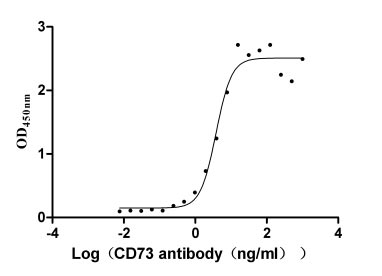
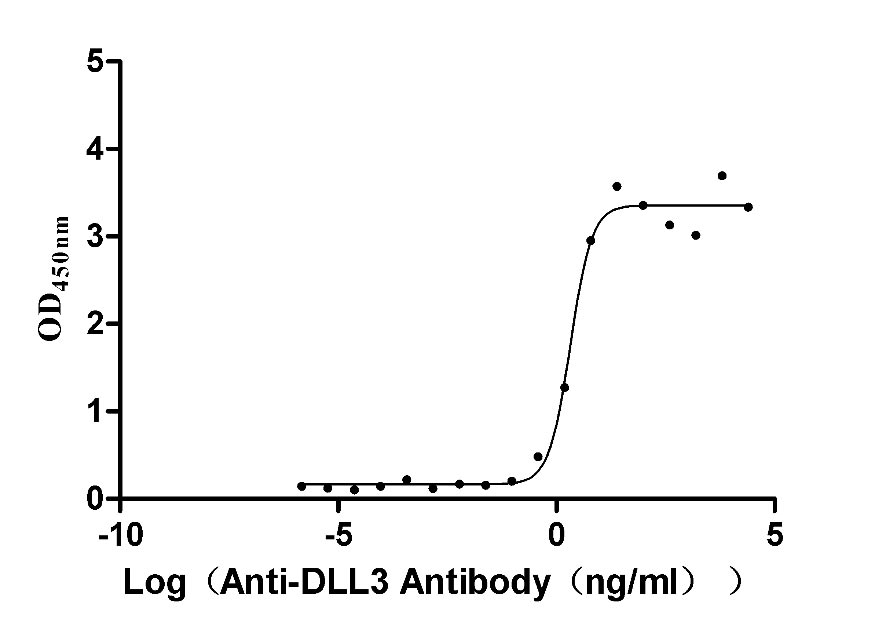
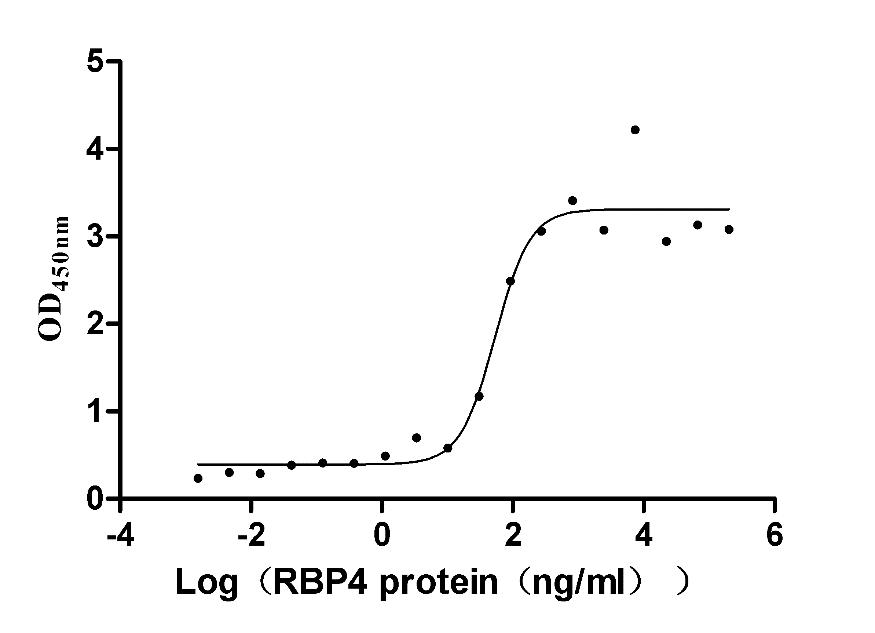
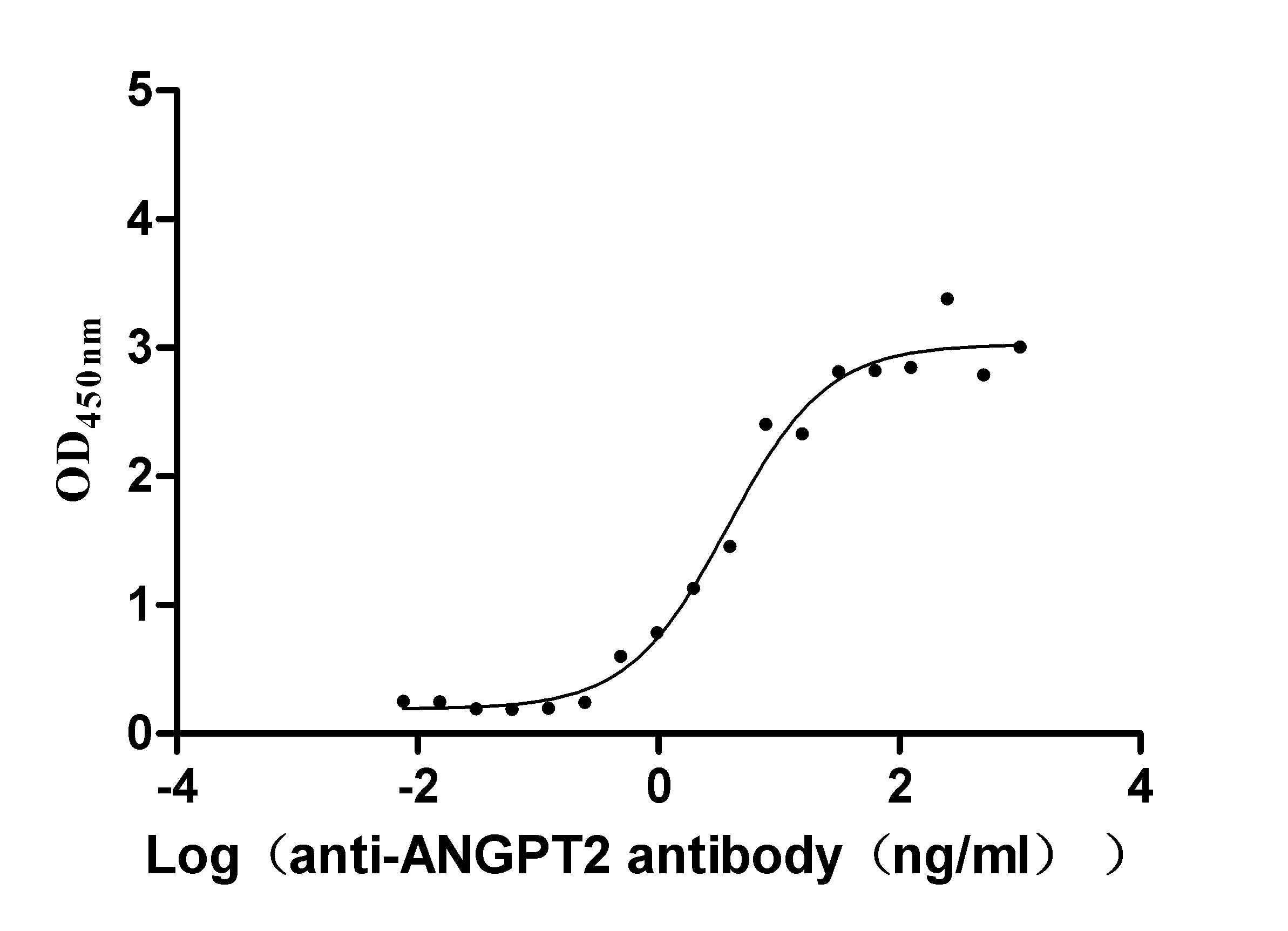
-AC5.jpg)
